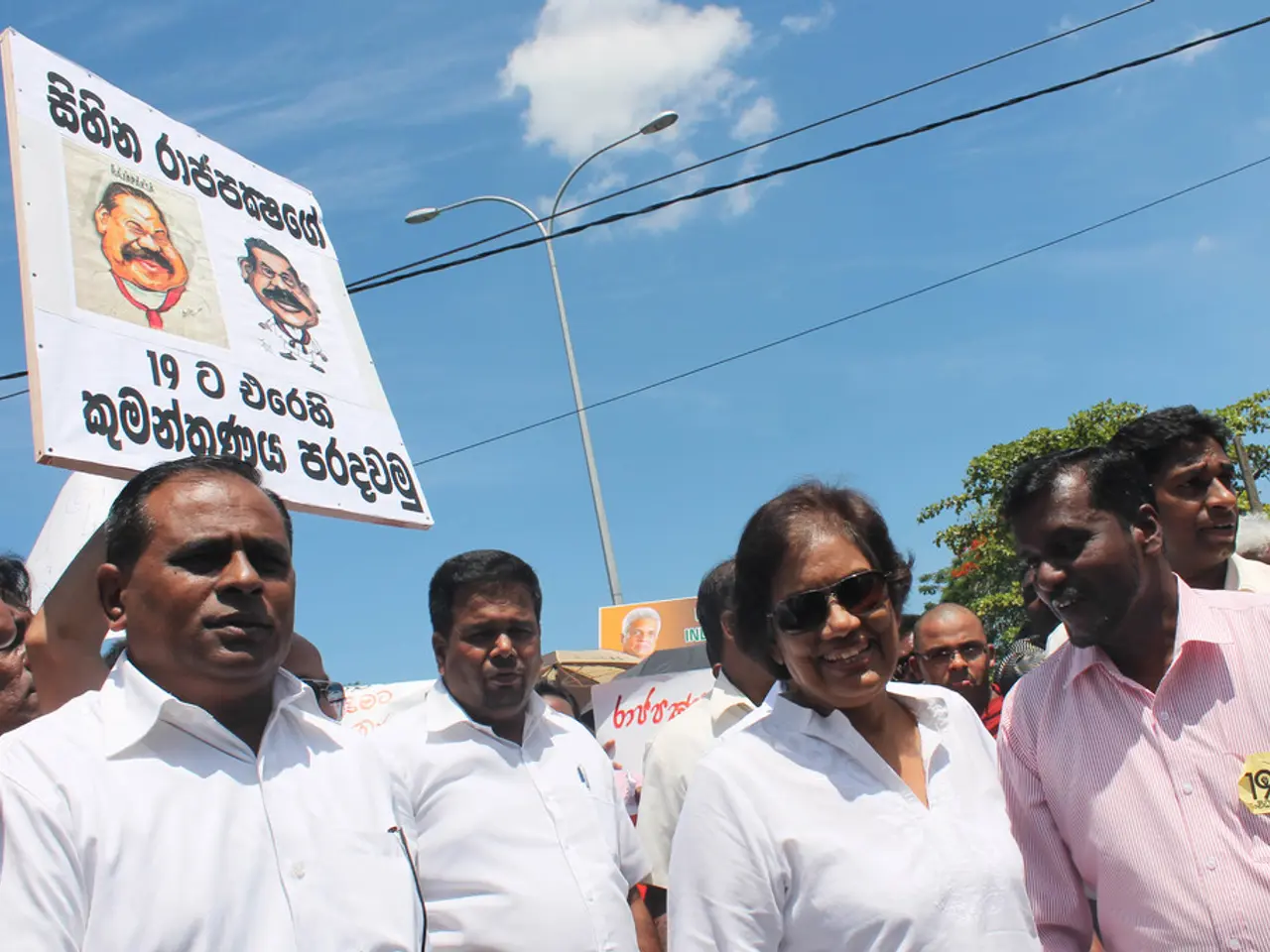Leaked audio file of Prime Minister Hun Sen is handed over to Office of the Attorney General by cyber enforcement agents
A 50-page report, based on evidence submitted by Pol Gen Sereepisuth Temeeyaves, leader of the Seri Ruam Thai Party, has set off an investigation into a leaked audio clip involving Cambodian Senate President Hun Sen and Thai political figures. The conversation, allegedly between Thailand's suspended Prime Minister Paetongtarn Shinawatra and Hun Sen, suggests a political alignment and deference from Paetongtarn amid a border dispute between Thailand and Cambodia [1][3][5].
The investigation has not reported any direct link to Hun Sen ordering political targeting or potential murder outside Thailand. Instead, the leak has sparked a series of political and legal responses in Thailand:
- The National Anti-Corruption Commission (NACC) has launched an ethics probe into Paetongtarn Shinawatra over the leaked call, examining alleged serious ethical misconduct, including possible abuse of power during the conversation. If evidence is found, the case may be forwarded to the Office of the Attorney General for prosecution [3][5].
- The Thai Attorney General’s Office and police are handling the case regarding the audio clip, collecting evidence and following legal procedures under the Attorney General’s authority [1].
- The leak has caused significant political controversy in Thailand, with claims that Hun Sen gained political advantage from it and that it has contributed to tensions between Thailand and Cambodia. Thai Prime Minister Paetongtarn Shinawatra is defending her actions, maintaining she acted in Thailand’s best interest [1][2][4].
- The Thai Constitutional Court suspended Paetongtarn from duty pending an ethics investigation related to the call and has required her to submit a defense against accusations of lacking integrity and loyalty [2][3][5].
Regarding the leaked audio recording, in which Hun Sen is heard ordering the murder of Lim Kimya, a former Cambodian opposition MP, no official investigation has been reported explicitly concerning Hun Sen ordering political targeting or murder outside Thailand. The investigations are mainly focused on the Thai side regarding ethics, national security, and potential political ramifications of the leaked audio involving Paetongtarn Shinawatra and her conduct in the conversation with Hun Sen [1][3][5].
Cyber crime police have submitted an investigation file on the leaked audio clip to the Office of the Attorney-General, aiming to determine if this is a criminal case committed outside the country [1]. The evidence submitted by the leader of the Seri Ruam Thai Party is related to the assault on Phorn Phanna, a Cambodian opposition activist who was assaulted by a group of Khmer-speaking men in Rayong in August 2023 [1].
If the Office of the Attorney-General deems it necessary, an arrest warrant will be issued, and Interpol will be asked to issue a red notice if the suspect is overseas [1]. Phorn Phanna reportedly fled to the US to seek asylum after the assault. The alleged action of Hun Sen is deemed a violation of Section 116 of the Criminal Code, which carries a maximum jail sentence of seven years [1].
The leaked audio recording was first released by Al Jazeera [1]. The Office of the Attorney-General will first examine if the case is an offence committed outside the kingdom before considering if there are grounds to bring the case to court [1]. The investigation file is linked to an order by Cambodian Senate President Hun Sen to target political dissidents in Thailand.
In June, Pol Gen Sereepisuth lodged a complaint with police against Hun Sen after a leaked audio clip implicated him in ordering the murder of political opponents in Thailand [1]. Lim Kimya was gunned down in Bangkok in January this year [1].
- The General-News outlet Al Jazeera first released a leaked audio recording, which alleges that Cambodian Senate President Hun Sen gave orders for the assassination of political dissidents in Thailand.
- The ongoing investigations in Thailand, including those by the National Anti-Corruption Commission, the Thai Attorney General’s Office, and the Cyber Crime Police, are focused on potential crimes related to the leaked audio recording, such as ethics violations, criminal offenses committed outside the country, and the assault on Phorn Phanna, a Cambodian opposition activist.







